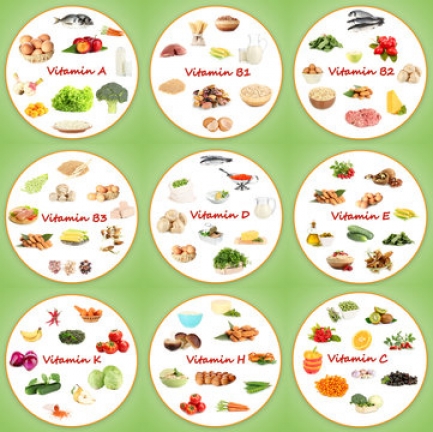Introduction:
Varicose veins can cause discomfort and affect one’s self-confidence. While medical treatments and lifestyle adjustments are important, adopting a healthy diet can significantly contribute to managing varicose veins.
In this article, renowned varicose veins specialist, Dr. Amit Sahu, shares valuable insights on the best diet and foods to promote healthy veins and effectively manage varicose veins.
Understanding Varicose Veins: Causes and Risk Factors
Varicose veins are swollen and twisted veins that usually occur in the legs. The primary causes of varicose veins include weakened vein walls and faulty valves, which impede blood flow and lead to pooling.
Factors that increase the risk of developing varicose veins include age, genetics, obesity, pregnancy, and prolonged standing or sitting.
The Importance of Diet in Varicose Vein Management
While diet alone cannot cure varicose veins, it plays a significant role in supporting vein health and managing symptoms.
A well-balanced diet can promote better circulation, strengthen vein walls, and reduce inflammation, improving the overall condition.

Essential Nutrients for Varicose Vein Health
Fiber-Rich Foods:
- Fiber helps prevent constipation and reduces pressure on veins, promoting healthy blood flow.
- Include whole grains such as oats, brown rice, and whole wheat bread in your meals.
- Consume ample fruits and vegetables like berries, oranges, broccoli, and leafy greens.
- Incorporate legumes like lentils, chickpeas, and kidney beans into your diet.
Antioxidant-Rich Foods:
Antioxidants protect the body against oxidative stress and inflammation, benefiting vein health.
- Include colorful berries such as blueberries, strawberries, and raspberries.
- Consume citrus fruits like oranges, grapefruits, and lemons for vitamin C.
- Add leafy greens like spinach and kale, along with nuts and seeds, to your meals.
Omega-3 Fatty Acids:
Omega-3 fatty acids have anti-inflammatory properties, reducing inflammation in veins.
- Incorporate fatty fish such as salmon and mackerel into your diet.
- Include plant-based sources like chia seeds, flaxseeds, and walnuts.

Vitamin C and Vitamin E:
- Vitamin C aids in collagen production, which helps strengthen vein walls.
- Vitamin E improves circulation and reduces the risk of blood clot formation.
- Consume vitamin C-rich foods like oranges, strawberries, and bell peppers.
- Include vitamin E sources such as almonds, sunflower seeds, and spinach.
Varicose Veins Diet Chart and Meal Planning
A well-structured diet chart can guide individuals with varicose veins in making healthier food choices.
- Consult with a healthcare professional or nutritionist to create a personalized diet plan.
- Ensure a balanced diet with a variety of nutrient-rich foods.
- Maintain portion control to prevent excessive weight gain.
Foods to Limit or Avoid for Varicose Veins
While certain foods support vein health, some should be consumed in moderation or avoided altogether.
- Minimize processed foods, which often contain high amounts of sodium and unhealthy fats.
- Limit the intake of high-sodium foods such as canned soups, snacks, and processed meats.
- Reduce consumption of sugary snacks and beverages.
- Avoid excessive alcohol consumption, as it can contribute to vein inflammation and fluid retention.
Expert Recommendations: Best Varicose Vein Clinic in Mumbai
When managing varicose veins, it is crucial to seek professional medical guidance and treatment.

Why Choose Dr. Amit Sahu Varicose Vein Clinic?
Experience and Expertise:
Dr. Amit Sahu possesses extensive experience in diagnosing and treating varicose veins. His expertise and in-depth knowledge ensure accurate assessments and personalized treatment plans.
Comprehensive Treatment Approach:
At Dr. Amit Sahu clinic, a comprehensive approach is taken to address varicose veins. The clinic offers various treatment options, including minimally invasive procedures, laser treatments, glue based venaseal treatment, and sclerotherapy, tailored to individual patient needs.
State-of-the-Art Facilities:
Dr. Amit Sahu clinic is equipped with advanced technology and state-of-the-art facilities to ensure the highest quality of care. The clinic maintains a clean and comfortable environment, promoting patient well-being and confidence.
Patient-Centered Care:
Patient satisfaction and well-being are top priorities at Dr. Amit Sahu clinic. The entire medical team is dedicated to providing compassionate care, addressing patient concerns, and offering ongoing support throughout the treatment process.
Collaborative Approach:
Dr. Amit Sahu believes in a collaborative approach to patient care. He works closely with each patient, explaining treatment options, discussing expected outcomes, and ensuring a well-informed decision-making process.
Contact Dr. Amit Sahu’s Varicose Vein Clinic in Mumbai
If you are seeking effective varicose vein treatment in Mumbai, contact Dr. Amit Sahu’s clinic to schedule a consultation and receive comprehensive care.
Conclusion:
Incorporating a healthy diet, rich in fiber, antioxidants, omega-3 fatty acids, and essential vitamins, is crucial for promoting vein health and managing varicose veins. Dr. Amit Sahu expert recommendations provide valuable insights into the best foods for varicose veins and their impact on overall vein health.
Remember to seek professional guidance and treatment from experts like Dr. Amit Sahu at the Best Varicose Vein and Diabetic Foot Clinic in Mumbai for comprehensive care and optimal vein health.